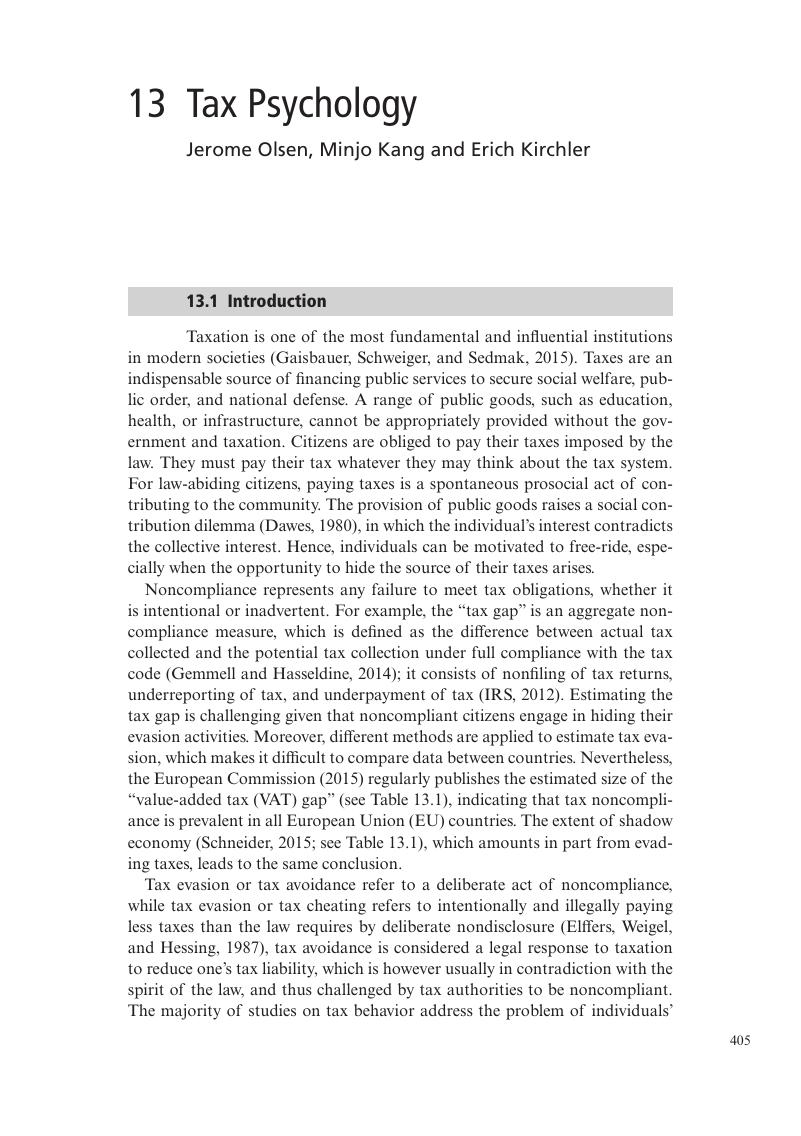Book contents
- The Cambridge Handbook of Psychology and Economic Behaviour
- The Cambridge Handbook of Psychology and Economic Behaviour
- Copyright page
- Dedication
- Contents
- Plates
- Figures
- Tables
- Notes on Contributors
- Introduction
- Part I Theory & Method
- Part II Finance
- Part III Private Sector Consumer Behaviour and the Firm
- Part IV Public Sector Consumer Behaviour
- 13 Tax Psychology
- 14 New Ways of Understanding Tax Compliance
- 15 ‘Individual Failure’ and a Behavioural Public Sector Economics
- Part V Environment
- Part VI Biological Perspectives
- Part VII New Horizons
- Index
- References
13 - Tax Psychology
from Part IV - Public Sector Consumer Behaviour
Published online by Cambridge University Press: 01 February 2018
- The Cambridge Handbook of Psychology and Economic Behaviour
- The Cambridge Handbook of Psychology and Economic Behaviour
- Copyright page
- Dedication
- Contents
- Plates
- Figures
- Tables
- Notes on Contributors
- Introduction
- Part I Theory & Method
- Part II Finance
- Part III Private Sector Consumer Behaviour and the Firm
- Part IV Public Sector Consumer Behaviour
- 13 Tax Psychology
- 14 New Ways of Understanding Tax Compliance
- 15 ‘Individual Failure’ and a Behavioural Public Sector Economics
- Part V Environment
- Part VI Biological Perspectives
- Part VII New Horizons
- Index
- References
Summary

- Type
- Chapter
- Information
- The Cambridge Handbook of Psychology and Economic Behaviour , pp. 405 - 429Publisher: Cambridge University PressPrint publication year: 2018
References
13.6 References
- 5
- Cited by



